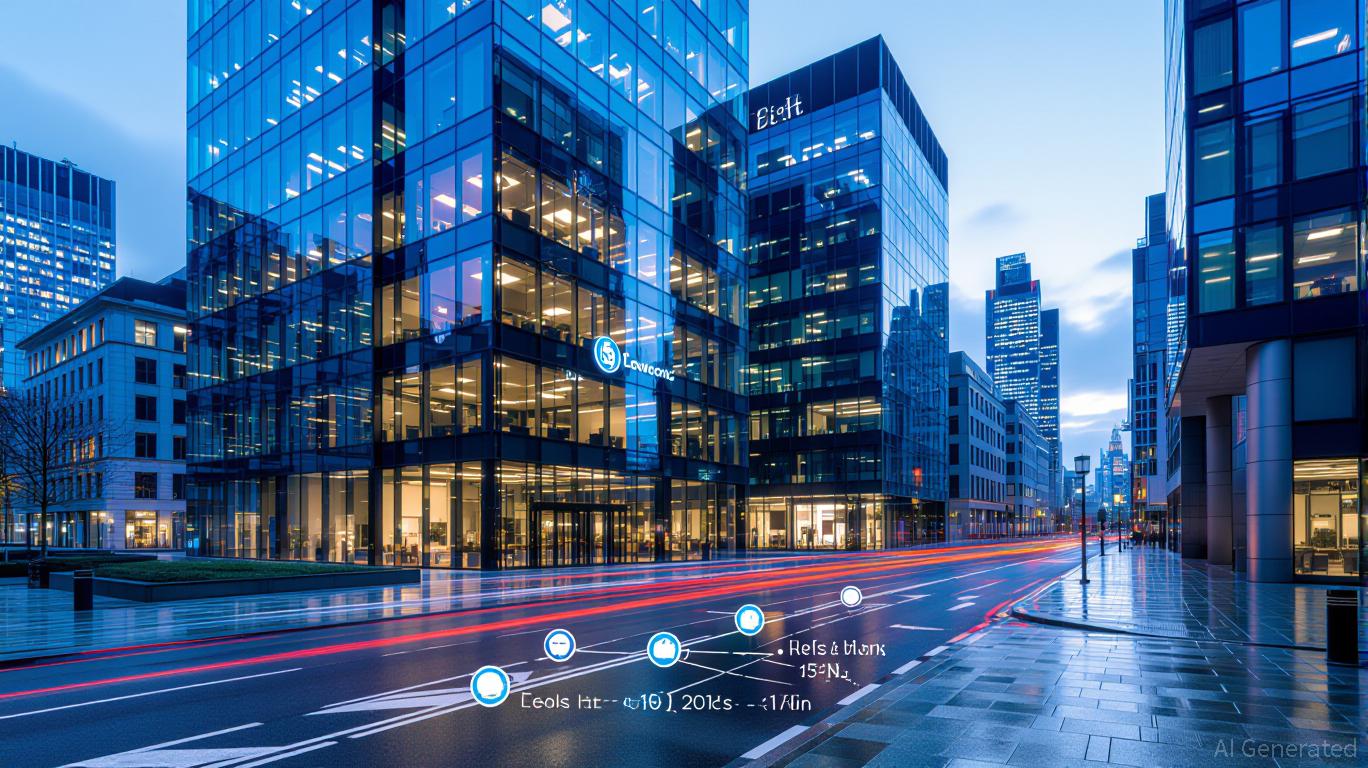
The European M&A landscape, once fragmented by Brexit uncertainties and geopolitical volatility, is now witnessing a recalibration of power. At the forefront of this shift is Evercore Inc., a global leader in independent advisory services, which is leveraging strategic acquisitions and top-tier leadership appointments to cement its dominance in the post-Brexit era. With the UK’s status as Europe’s largest M&A advisory market and the continent’s evolving energy and technology sectors, Evercore’s recent moves—most notably the acquisition of Robey Warshaw and the appointment of Luigi de Vecchi—position the firm as a formidable player in a high-growth arena.
The Robey Warshaw Acquisition: A Masterstroke in EMEA Expansion
Evercore’s GBP 146 million acquisition of Robey Warshaw, a UK-based boutique with a stellar reputation for cross-border deals, is a calculated bet on the UK’s enduring influence in European M&A. Robey Warshaw’s track record includes landmark transactions such as Banco Santander’s acquisition of TSB and HSBC’s strategic advisory work, while its recent foray into high-profile sports deals (e.g., the Chelsea Football Club bid) underscores its ability to navigate complex, high-stakes environments.
By integrating Robey Warshaw, Evercore gains immediate access to 400+ bankers across nine EMEA countries, bolstering its presence in a region where cross-border collaboration remains critical. The acquisition’s two-tranche payment structure—GBP 146 million split between stock and deferred incentives—aligns with Evercore’s performance-driven ethos, ensuring that Robey Warshaw’s team is incentivized to deliver long-term value.
The financial implications are equally compelling. Evercore projects the deal to be accretive to both Adjusted and GAAP EPS in its first full year post-closing, a rarity in an industry where many acquisitions struggle to justify their valuations. This is not just a geographic expansion but a strategic deepening of client relationships, particularly in sectors like energy transition and technology infrastructure, where European markets are expected to drive significant M&A activity.
Leadership Reinforced: Luigi de Vecchi’s Role in Shaping Continental Europe’s Future
While acquisitions provide scale, leadership defines execution. Evercore’s appointment of Luigi de Vecchi as senior managing director and chairman of its continental European advisory business is a testament to its ambition. De Vecchi, a 35-year veteran of Citigroup and Credit Suisse, brings a portfolio of landmark deals, including the €50 billion Essilor-Luxottica merger and LVMH’s $16 billion acquisition of Tiffany. His expertise in navigating inflationary pressures, energy transitions, and geopolitical risks aligns perfectly with Europe’s current challenges.
De Vecchi’s role is pivotal in two ways:
1. Geographic Expansion: Evercore is opening a new office in Milan, Italy, a strategic move to tap into the country’s growing M&A activity in green energy and industrial sectors.
2. Performance-Driven Culture: By retaining top talent through a fee-sharing model, Evercore ensures that its senior bankers remain deeply invested in client outcomes—a differentiator in a competitive market.
De Vecchi’s academic ties to LUISS University in Rome and his involvement in ESG-focused initiatives further position Evercore to meet Europe’s regulatory demands, particularly in sustainable finance. This is a critical edge as the EU’s Corporate Sustainability Reporting Directive (CSRD) and similar frameworks reshape advisory services.
Strategic Synergies: Building a Post-Brexit Powerhouse
The combination of Robey Warshaw’s UK-centric expertise and de Vecchi’s continental Europe leadership creates a dual-axis strategy for Evercore. Post-Brexit, the UK remains a critical hub for cross-border deals, while the EU’s fragmented market demands localized insights. Evercore’s approach—global reach with European depth—addresses both.
For example, in the energy transition sector, Robey Warshaw’s experience with energy infrastructure deals complements Evercore’s global ESG advisory capabilities. Similarly, de Vecchi’s track record in cross-border restructurings positions the firm to advise on the European energy sector’s ongoing transformation, a market projected to grow by 12% annually through 2030.
Investment Implications and Outlook
Evercore’s strategic moves are not just defensive—they are offensive. By aligning with the UK’s M&A momentum and the EU’s green transition, the firm is positioning itself to capture a disproportionate share of value in a market where complexity and specialization are barriers to entry.
For investors, the key metrics to watch are:
– EPS accretion: Evercore’s ability to meet or exceed its EPS projections post-Robey Warshaw integration.
– Deal pipeline: The number of cross-border transactions in energy and technology sectors, where Evercore’s combined expertise is most relevant.
– Leadership retention: The success of de Vecchi’s fee-sharing model in retaining top talent amid industry competition.
While risks remain—such as macroeconomic headwinds and regulatory shifts—Evercore’s focus on high-margin advisory services and its ability to adapt to client needs make it a compelling long-term play. The firm’s stock, currently trading at a forward P/E of 14x, appears undervalued relative to its growth prospects.
Conclusion
Evercore Inc. is not merely expanding its footprint in Europe; it is redefining its role as a post-Brexit leader. Through the Robey Warshaw acquisition and de Vecchi’s strategic leadership, the firm has created a hybrid model that balances global scale with local expertise. For investors, this represents a rare opportunity to capitalize on a company that is not only adapting to change but actively shaping it. As Europe’s M&A landscape evolves, Evercore’s strategic foresight may prove to be its most valuable asset.
